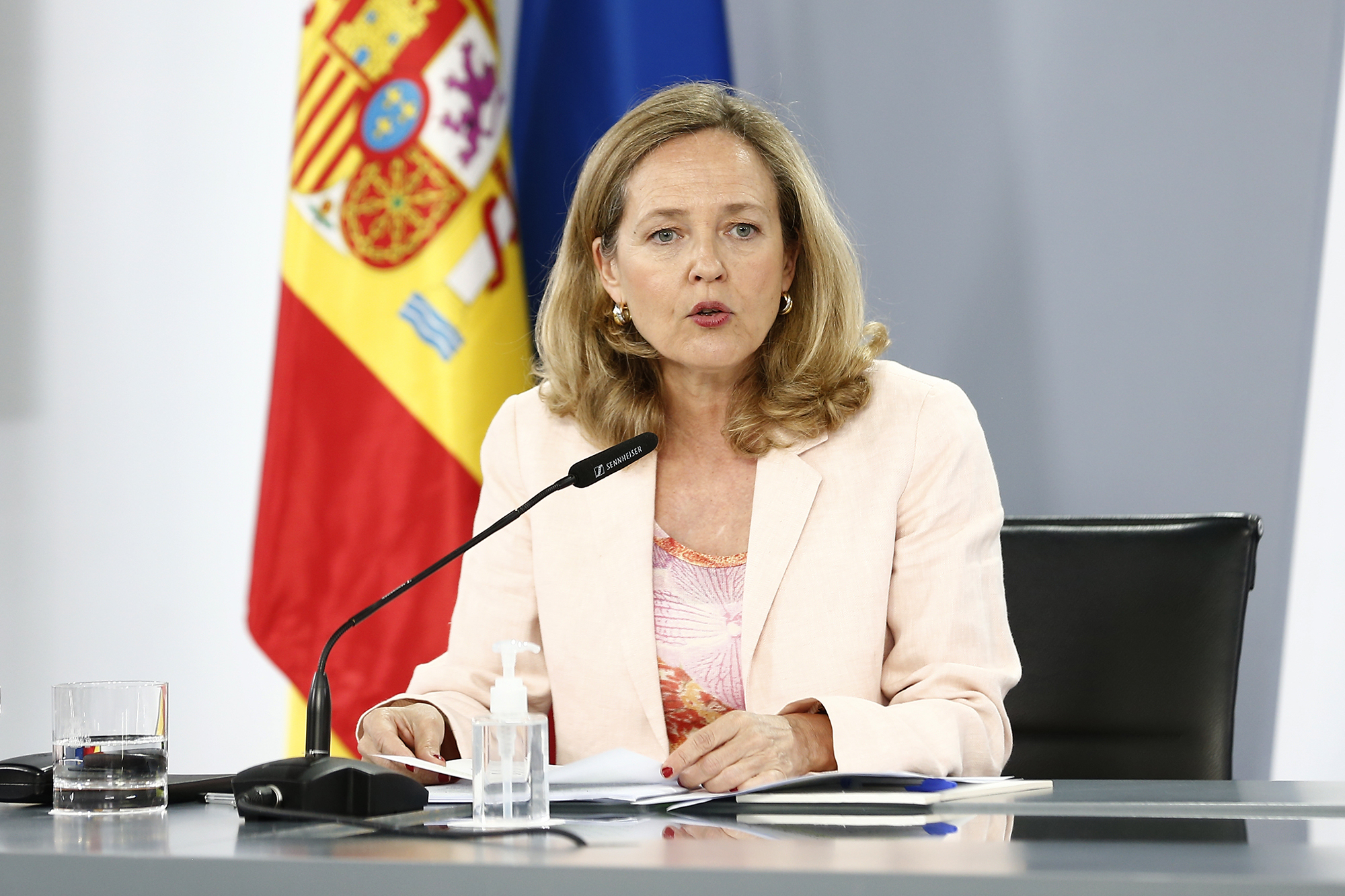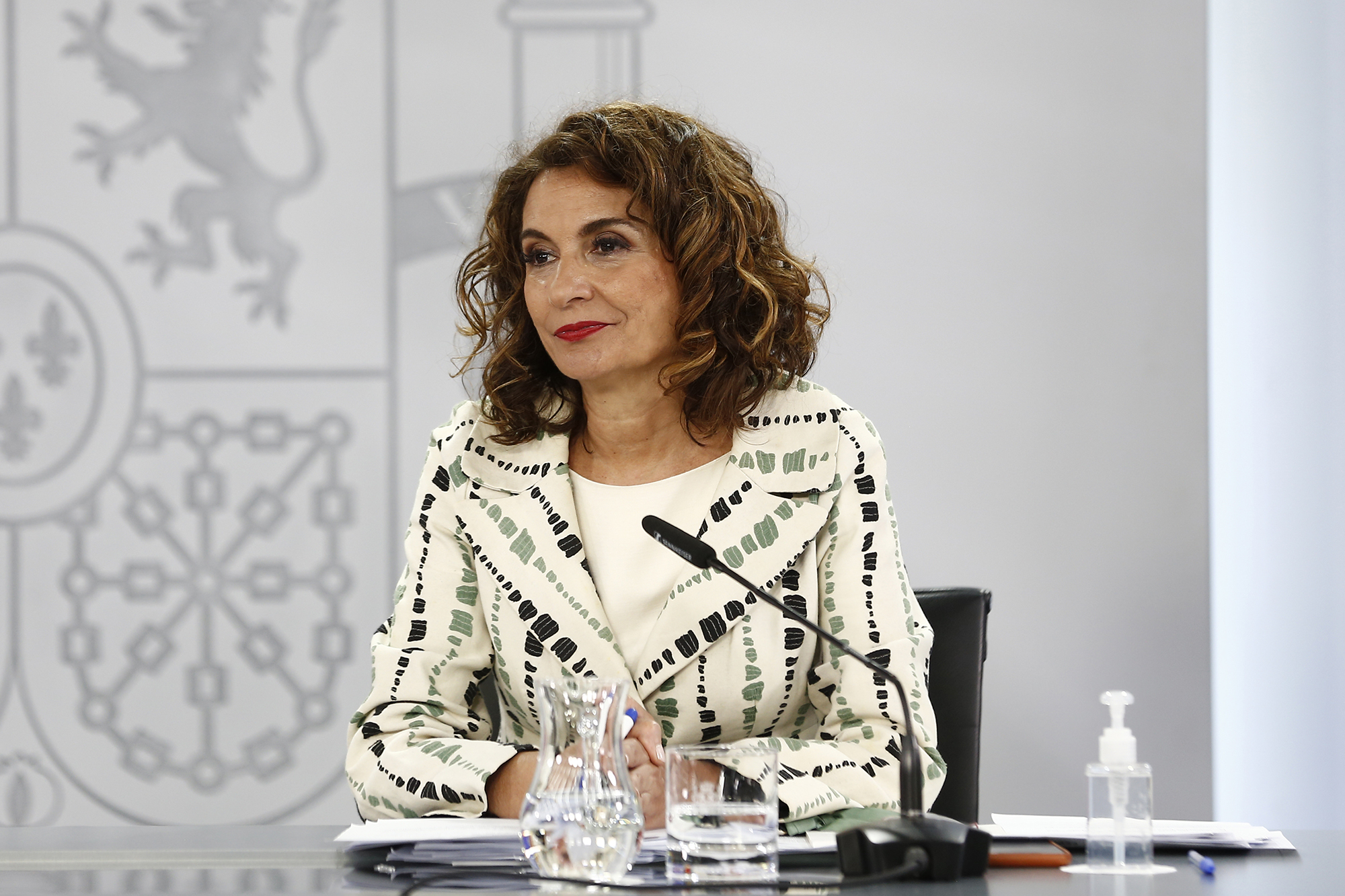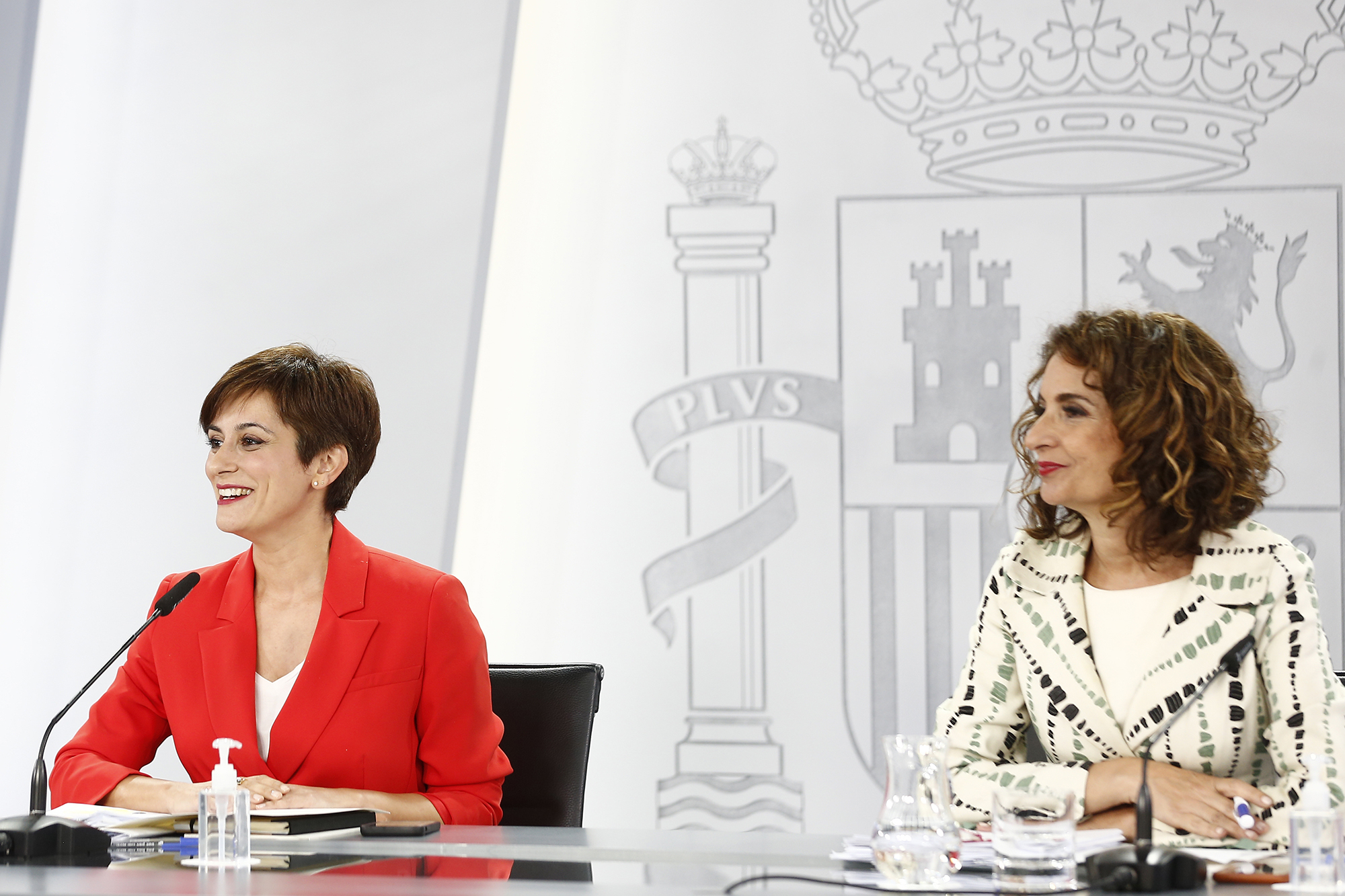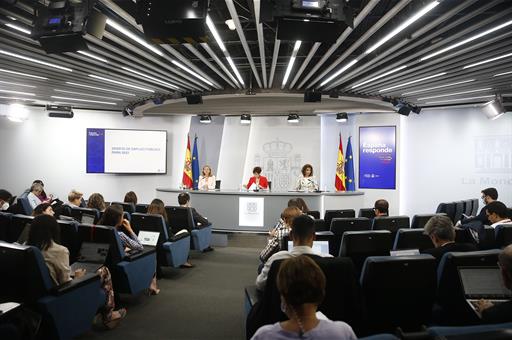Government of Spain approves the Strategic Project for microelectronics and semiconductors
Council of Ministers - 2022.5.24
Moncloa Palace, Madrid
The Council of Ministers has approved the Strategic Project for the Recovery and Economic Transformation of Microelectronics and Semiconductors (PERTE Chip), within the framework of the Recovery, Transformation and Resilience Plan.
The First Vice-President of the Government of Spain and Minister for the Economy and Digital Transformation, Nadia Calviño, has pointed out that "it is probably the most ambitious project of the recovery plan" due to its amount (12.25 billion euros of public investment), its transformative impact on industry and its contribution to the autonomy of Spain and the European Union in terms of technology.
Calviño added that the aim of PERTE Chip is to comprehensibly develop the design and production capacities of the Spanish microelectronics and semiconductor industry, covering the entire value chain from design to chip manufacturing and generate a multiplier effect, not only in technology sectors, but also for industry and the economy as a whole.
Nadia Calviño pointed out that the shortage of semiconductor production in Europe means a reliance on Taiwan, the United States, South Korea, Japan and China, which is a situation that must be reversed. Europe has launched several projects to get global production to 20% by 2030.
In this context, Spain is committed to strengthening the strategic assets in which it is best positioned: development of alternative architectures such as RISC-V; integrated photonics; development of quantum chips and a network of micro- or nano-fabrication rooms. It also has leading companies demanding semiconductors in key sectors such as automotive, machine tool manufacturing, telecommunications, aerospace, rail transport, defence and infrastructure construction.
Key pillars of the PERTE
 Pool Moncloa
Pool Moncloa
According to the first vice-president, the PERTE Chip is long-term, it will move forwards in phases, be built through public-private partnerships, and integrated and aligned with the European chip strategy.
The first pillar involves reinforcing scientific capacity, with actions to strengthen R&D on cutting-edge microprocessors and alternative architectures and integrated photonics, developing quantum chips and participating in the Important Projects of Common European Interest on Microelectronics and Communication Technologies (IPCEI ME-TC).
The second relates to the design strategy and includes initiatives that will enhance Spanish capabilities in the design of cutting-edge microprocessors through the creation of fabless companies, test pilot lines and semiconductor training networks.
The third pillar is oriented towards the construction of manufacturing plants in Spain with capacities both above and below five nanometres.
The fourth involves the dynamisation of the European IT manufacturing industry, with an incentive scheme for the manufacturing industry to create a chip pool.
Nadia Calviño has detailed that the total budget of PERTE Chip amounts to 12.25 billion euros until 2027. The main source of funding will come from the addendum to the Recovery, Transformation and Resilience Plan, which the Executive will present in the second part of the year.
The implementation of the PERTE will be articulated through different management instruments, such as grants, capital contributions, contracts, commissions and other forms of public-private partnership.
To articulate the project, a Special Commissioner for the Microelectronics and Semiconductors Project will be created under the leadership of Jaime Martorell Suarez, an expert in the sector.
The first vice-president concluded by pointing out that the Government wants Spain to play a pivotal role in the technological field and that European funds provide an extraordinary opportunity: "We have the recovery plan, a roadmap for the transformation of the key sectors of our economy, we have the funding to make it happen and the determination to make the most of it".
Public Employment Offer 2022: 44,787 jobs
 Foto: Pool Moncloa/César P Sendra
Foto: Pool Moncloa/César P Sendra
The Council of Ministers has approved the Public Employment Offer (OPE) for 2022, which includes 44,787 jobs, some 12.2% more than in 2021.
"It is the largest offer in history", stressed the Minister for Treasury and Public Function, María Jesús Montero, who reiterated the Government's commitment to quality public employment with people "qualified, efficient and committed to serving citizens".
Montero warned that public policies cannot be strengthened if the administrations do not have the necessary workers and sufficient job stability to be able to carry them out.
For this reason, she recalled that since 2018, the Government has approved a total of 143,869 jobs, 126% more than those approved between 2012 and 2017, and has provided for replacement rates of 110 to 125% depending on the sector in the current General State Budget.
The minister also stressed that the jobs offered are consistent with the Executive's priorities. Of the total, 27.5% are linked to social cohesion and citizen services, 19% to the green and sustainable economy and 14.6% to digital transformation and innovation. In addition, STEM profiles in science, technology, engineering and mathematics are promoted for open access places.
Open admission, internal promotion and stabilisation
The OPE 2022 includes 34,151 jobs in the ordinary offer and 10,363 in the stabilisation of temporary employment.
In the ordinary offer, the open admission and internal promotion positions for the General State Administration (AGE), the National Police Corps, the Guardia Civil, the Armed Forces, the Justice Administration and the General Council of the Judiciary are included.
In the stabilisation offer, 4,691 jobs are available in the AGE and 5,945 for the Justice Administration.
The minister pointed out that in addition to these two offers, a further 18,149 jobs corresponding to the public business sector and instrumental entities will soon to be added.
Deadlines for the stabilisation of temporary employment
Montero recalled that, with the approval of the stabilisation job offer, the Government is complying with the timetable established in Law 20/2021 on Urgent Measures to Reduce Temporality in Public Employment, which all public administrations must have authorised before 1 June 2022: "Today we are doing it and I hope that in the next few days the rest of the administrations, regional governments and local corporations will do so".
The selection processes in the State will be called before December this year and have a deadline of 31 December 2024.
Savings measures in the AGE and the state public sector
The Government has approved the Energy Saving and Efficiency Measures Plan foreseen in the National Response Plan to the Economic and Social Consequences of the War in Ukraine.
Montero pointed out that this Plan, aimed at the General State Administration (AGE) and state public sector entities, includes measures that can have an energy savings effect in the short term.
To rationalise the use of public facilities and buildings, e.g. switch-on and switch-off times for air conditioning, lighting and office equipment will be established and the temperatures of the premises will be controlled. The light level of outdoor lighting will also be regulated and areas will be identified to accommodate photovoltaic installations for self-consumption.
Among the organisational measures, Montero highlighted the strengthening of remote working to reduce travel and energy consumption in the workplace. The undersecretariats of the different ministries will determine which posts are eligible for this, which can be offered three days a week, while the other two days will be for in-office work.
All public employees will receive training on energy efficiency and mobility. In this regard, the use of public transport and cycling will be encouraged and safe parking facilities will be provided.
Bill on Public Policy Evaluation
The Executive has agreed to send the Bill for the Institutionalisation of Public Policy Evaluation in the General State Administration to Parliament, which "will enable a qualitative leap in terms of the quality and effectiveness of public policies", said María Jesús Montero.
The minister explained that the new regulation will make it possible to systematise the culture of continuous evaluation in public administrations, the implementation of indicators to ensure the efficient use of public resources, the achievement of the objectives set and accountability to the public.
Twenty-four hour care for women victims of sexual violence
 Foto: Pool Moncloa/César P Sendra
Foto: Pool Moncloa/César P Sendra
The Government will distribute 46.2 million euros among the regional governments to set up 24-hour care centres for women victims of sexual violence. The distribution will be decided at the Sectoral Conference on Equality.
The Minister for Territorial Policy and Government Spokesperson, Isabel Rodríguez, explained that the aim is for there to be a centre in each province open 24 hours a day, 365 days a year, to offer psychological and legal care to victims.
With regard to sex-based violence, the Council of Ministers heard the annual report of the State Observatory on Violence, which states that fifteen women have been murdered so far this year, that the 016 telephone number has dealt with almost 70,000 calls and that more than 13,500 women have requested protection orders. Since statistics have been kept, there have been 1,145.
Rodríguez called on the public authorities, the media and the public to "unreservedly combat" both sexual assaults and sex-based violence.
Non official translation





